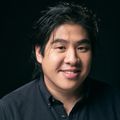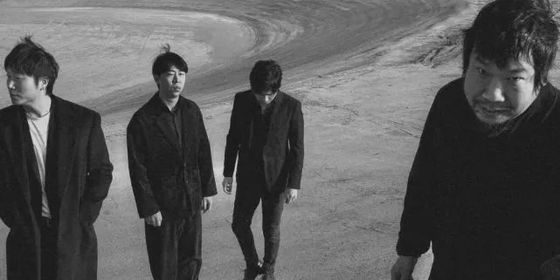One of China’s most influential pop singers comes of age with her first solo album since she stopped recording with girl group S.H.E.
In the early 2000s, the pop girl trio S.H.E fanned the flames of Chinese pop to heights never before seen, armed with a combination of bubblegum lyrics and idol-theatrics. Taking notes from the Destiny’s Child playbook, S.H.E.’s subsequent 12 albums made them the face of female Mando-pop for a generation of young music listeners.
Fast forward more than two decades from the release of Girl’s Dorm, the trio’s debut album, and the three singers who lent their initials to the band's name have gone their separate ways (though S.H.E. has not officially disbanded, their contract was not renewed by their management agency HIM International in 2018). They have largely reinvented themselves as actresses, solo artists, fashion icons, and industry trendsetters.
Enter Hebe Tien, the “H” of S.H.E., with her first solo album since she stopped recording with the group that made her famous (and her fifth solo album overall). Time Will Tell, released in September 2020, garnered her the coveted Best Female Vocal Album at the 32nd Golden Melody Awards in late August this year but also drew controversy for its style, or overarching lack thereof.
While these criticisms fairly call out the album’s lack of commercial mainstream appeal, Time Will Tell successfully demonstrates two things: first, that Hebe, now better known as Tien Fu-Chen (田馥甄), has moved on from S.H.E.; and second, that what she has to offer as a soloist is unconventional and complex, a pastiche of themes and musical ideas that evoke the memory of a person, seen through their own older and wiser eyes. More than anything, Time Will Tell seems to say: “I’m not the person I used to be.”
While throughout her career as a member of S.H.E and as a solo artist, Tien has stayed safely inside the confines of mainstream pop music, Time Will Tell establishes a new identity for herself as an artist who isn’t afraid to go against the grain. Gone is the bubblegum electro-pop idol that drew hordes of young concertgoers to S.H.E’s four world tours; gone is the girlish laughter and naivete of a young female icon who, along with her “dorm-mates,” shattered concert attendance records for a female pop group in Asia. Before us stands a more mature woman, now 38 years old, who is finally ready to open up: “I will show you my soul,” she sings in “A Song for You (或是一首歌).”
The famous jazz musician Branford Marsalis once said, regarding the state of jazz music: “There’s 12 fucking notes. What's going to be new? You honestly think you're going to play something that hasn't been played already?” Though a brutally honest portrayal of a music genre that heavily emphasizes innovation and creativity at all cost, one solution to the problem of innovating in a limited creative space is to recognize and accept that re-contextualization of old material is the only path forward. So while Time Will Tell doesn’t offer anything truly new, the eclectic mix of styles makes it seem fresh and invigorating nonetheless.
Time Will Tell is hard to categorize by genre, because it aims simply to capture emotions without the conventions of style: It’s a complex album written and recorded by musicians and producers from all over China, where each song feels like a somber echo which builds into a staggering emotional climax, dusted with unconventional instrumentation and artistry from the likes of trumpeter Li Xiaochuan, Radio Mars bassist and producer Michael Ning, fellow GMA nominee for Best Band Deca Joins, and helmed by legendary producer George Chen Chien-chi.
“You Should Know (先知),” the first full length track off the album, is a throwback to the electropop world from which Tien comes; it’s as if to re-establish the origin story of the State of Hebe. It’s quickly muted by a stuttering synthesizer solo that evokes a Peking opera performance, blistering guitar in the style of Prince, and smoldering de-tuned vocals over “Crop Circles (田),” shattering the notion that the rest of the album will remain in throwback mode. Compared with the unnatural overtones and reverb of modern pop production found in S.H.E’s studio recordings, Hebe’s voice here is crisp, pared down and refreshingly simple.
Though the titular track remains a classic pop ballad in form, the explosive culmination of the tune diverges from the standard pop format, and there is little in common with, say, “Humans Are the Worst (人什麼的最麻煩了)” a swinging waltz that exposes the most subtle nuances of Tien’s voice floating above upright bass and nylon-string guitar that take liberties with the harmony and melody that would feel much more at home at a jazz concert. “Once Again (一一),” on the other hand, opens with a melancholy introduction by trumpeter Li Xiaochuan, backed by industry veteran drummer Wu Yongheng “Beibei.” Though there’s something for everyone, nothing will be what you expect.
In recognizing this older, wiser, and unconventional Tien, the jury at the 32nd Golden Melody Awards clearly decided that this is a direction that should serve as a model for other breakout standalone performers. From the title alone, Time Will Tell seems to lay bare the elements of Tien that she hopes will last: even if the notes have been played already, she’s given them her heart and soul, and that’s what matters.













